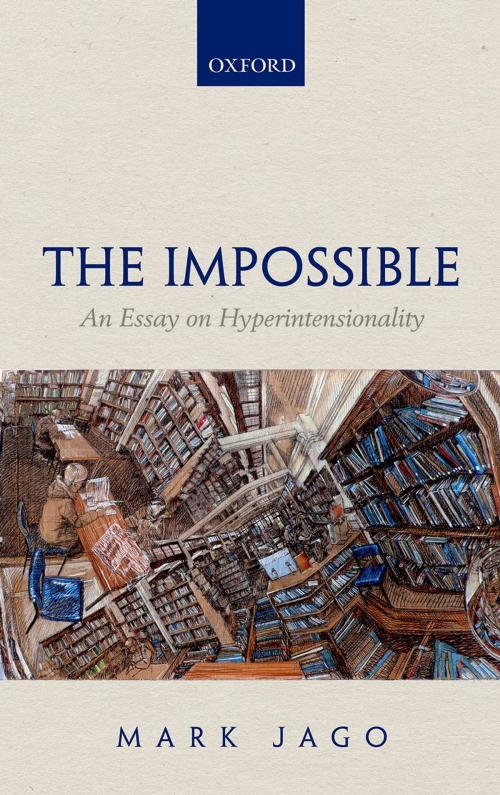The Impossible
An Essay on Hyperintensionality
Nonfiction, Religion & Spirituality, Philosophy, Metaphysics, Reference & Language, Language Arts| Author: | Mark Jago | ISBN: | 9780191022777 |
| Publisher: | OUP Oxford | Publication: | April 24, 2014 |
| Imprint: | OUP Oxford | Language: | English |
| Author: | Mark Jago |
| ISBN: | 9780191022777 |
| Publisher: | OUP Oxford |
| Publication: | April 24, 2014 |
| Imprint: | OUP Oxford |
| Language: | English |
Mark Jago presents an original philosophical account of meaningful thought: in particular, how it is meaningful to think about things that are impossible. We think about impossible things all the time. We can think about alchemists trying to turn base metal to gold, and about unfortunate mathematicians trying to square the circle. We may ponder whether god exists; and philosophers frequently debate whether properties, numbers, sets, moral and aesthetic qualities, and qualia exist. In many philosophical or mathematical debates, when one side of the argument gets things wrong, it necessarily gets them wrong. As we consider both sides of one of these philosophical arguments, we will at some point think about something that's impossible. Yet most philosophical accounts of meaning and content hold that we can't meaningfully think or reason about the impossible. In The Impossible, Jago argues that we often gain new information, new beliefs and, sometimes, fresh knowledge through logic, mathematics and philosophy. That is why logic, mathematics, and philosophy are useful. We therefore require accounts of knowledge and belief, of information and content, and of meaning which allow space for the impossible. Jago's aim in this book is to provide such accounts. He gives a detailed analysis of the concept of hyperintensionality, whereby logically equivalent contents may be distinct, and develops a theory in terms of possible and impossible worlds. Along the way, he provides a theory of what those worlds are and how they feature in our analysis of normative epistemic concepts: knowledge, belief, information, and content.
Mark Jago presents an original philosophical account of meaningful thought: in particular, how it is meaningful to think about things that are impossible. We think about impossible things all the time. We can think about alchemists trying to turn base metal to gold, and about unfortunate mathematicians trying to square the circle. We may ponder whether god exists; and philosophers frequently debate whether properties, numbers, sets, moral and aesthetic qualities, and qualia exist. In many philosophical or mathematical debates, when one side of the argument gets things wrong, it necessarily gets them wrong. As we consider both sides of one of these philosophical arguments, we will at some point think about something that's impossible. Yet most philosophical accounts of meaning and content hold that we can't meaningfully think or reason about the impossible. In The Impossible, Jago argues that we often gain new information, new beliefs and, sometimes, fresh knowledge through logic, mathematics and philosophy. That is why logic, mathematics, and philosophy are useful. We therefore require accounts of knowledge and belief, of information and content, and of meaning which allow space for the impossible. Jago's aim in this book is to provide such accounts. He gives a detailed analysis of the concept of hyperintensionality, whereby logically equivalent contents may be distinct, and develops a theory in terms of possible and impossible worlds. Along the way, he provides a theory of what those worlds are and how they feature in our analysis of normative epistemic concepts: knowledge, belief, information, and content.















